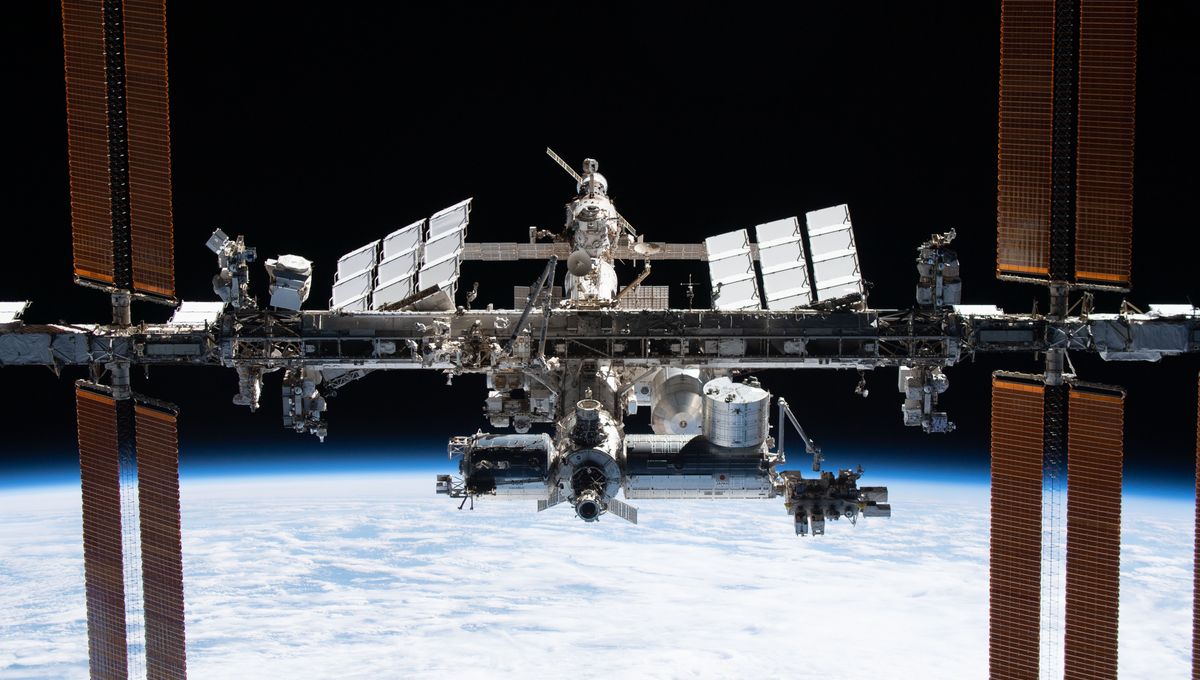
In January 2031, the International Space Station (ISS) will come to an end. NASA plans to deorbit it, with the station burning up in Earth’s atmosphere over a very remote area of the Pacific Ocean. It will be the end of an era; there have continuously been humans in orbit since its launch in November 2000. It’s not the only space station in existence, so hopefully, this unbroken record doesn’t end with it, but it’s the only one the US currently has access to. So when the ISS comes crashing down in a few years’ time, what’s NASA’s plan, and who will still be in space?
Tiangong, China’s space station
Currently, the only other permanently orbiting space base is China’s Tiangong Space Station. The construction of it began in April 2021 and it consists of three modules. It was announced this year that the base, currently one-third in volume compared to the ISS, will double from 2027, with the addition of three more modules. Tiangong is expected to last at least 10 years. It’s unlikely that China will continue to crew Tiangong well into the 2030s, however, especially with the additions of new modules late in this decade.
For those of you who can do fast math, you might have just realized this means that there are just a few more years of continuous space presence before we run out of nations’ space stations.
Private space stations
This is where private space companies come in. If you want a more literal continuity between the ISS and human presence in space, we can consider the Axiom Station. Axiom Space will be sending modules to the ISS to conduct commercial space activities. When the ISS is decommissioned, Axiom Space will detach and simply keep going on its orbit.
The modules that make up this station will have different functions, from more traditional space labs to manufacturing facilities and even a recording studio. The initial module is expected to be launched in late 2025 and will be home to four astronauts. When it detaches from the ISS, it will have six modules and be able to house a crew of eight.
Russia’s new space station
Another literal departure from the ISS will be Russia and possibly the Russian segment. Following Russia’s invasion of Ukraine and the sanctions imposed on Russia by governments in the West, the former soviet country announced that it would leave the ISS after 2024 and start its own station in 2027. This seems to not exactly be on the cards anymore, or at least not on this schedule. Russia has agreed to continue to be part of the ISS until 2028.
The first module of the planned Russian Orbital Service Station (ROSS) is a module that was destined for the Russian part of the ISS, which has suffered many issues due to aging facilities. The module, called NEM-1, is currently scheduled to launch in 2027, with a second one to follow suit in 2028, concluding in 2035 with seven modules.
The ROSS station will be going in a Sun-synchronous orbit, a nearly-polar orbit that would allow faster access to the station from Russia compared to the ISS. It is unknown how close this is to becoming a reality, but Russian Space Agency Roscosmos did launch a Moon mission without much announcements this summer.
Lunar Gateway
If we are speaking of the Moon, the next big project for an international space station is the Lunar Gateway, a space station placed in lunar orbit as a “gateway” to the Moon, and maybe even for missions to Mars. Starting at the end of this decade, this will involve current ISS members NASA, ESA, JAXA, and CSA – the US, European, Japanese, and Canadian space agencies, respectively. The gateway is seen as a crucial player for building and operating bases on the Moon but it is not envisioned as a permanent habitation in deep space.
It seems that humanity will continue to have some of its own off-planet for the foreseeable future but to maintain the record unbroken, new space stations will be needed in the late 2030s. India is considering one and there are many private companies interested in doing the same. Who knows, maybe once we don’t have the ISS anymore, we will miss it so much that we will start building another one.
Source Link: When The ISS Comes Crashing Down, Will There Be Anyone Still In Space?